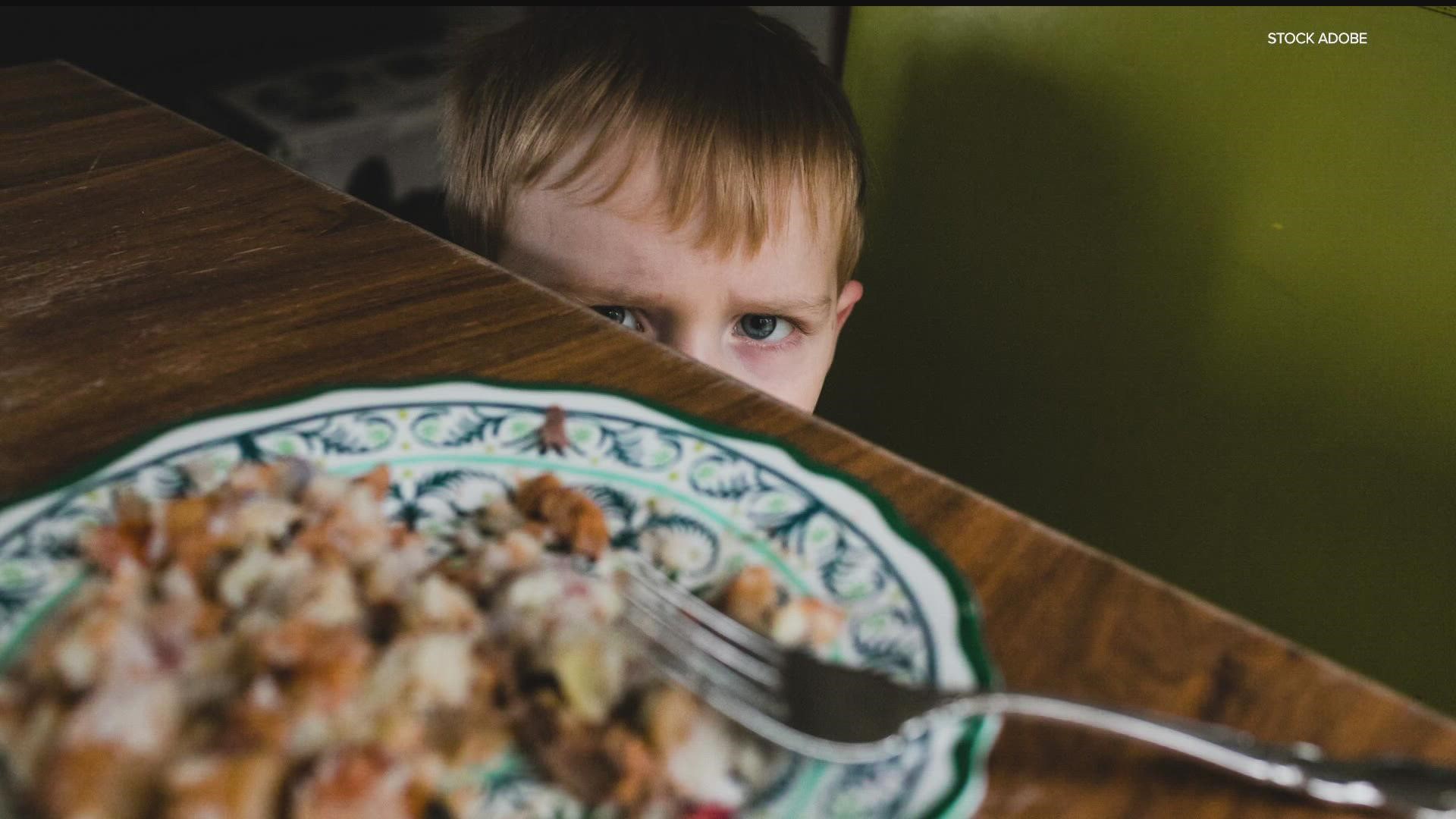MINNEAPOLIS — Since the rise of social media, kids, teens and even adults see images of unrealistic body standards online nearly every day. Trying to emulate what these platforms portray as the "ideal" body, however, can lead to serious mental and physical health issues.
But as they say, change starts at home and sometimes that change can happen at the family dinner table.
Many kids are picky eaters. Many parents are stressed about their picky eaters, which can lead to mealtimes arguments about the foods that are and are not getting cleaned from everyone's plates.
"The biggest challenge is just feeling panic as a parent," said Instagram influencer and dietitian Jennifer Anderson." You're losing sleep, you're worrying all the time. Mealtimes are a battle."
Anderson is using her page, Kids Eat in Color, to change the way we see food.
"I really understand that angst, and giving parents the tools to reduce that stress at mealtime and to prepare the environment so their child can eat enough and can learn to like foods is really crucial."
Anderson works with a team of psychologists, occupational therapists and dietitians to give parents tools to de-escalate the mealtime battles.
She says the number one thing you can do is stop pressuring your kids to eat.
"This can be a hard pill to swallow, because we want our child to eat a balanced diet, we want our children to eat those veggies. We want our child to eat enough food to grow," said Anderson. "At the end of the day though, we're pushing it, we're saying you've got to eat five carrots, you gotta do this, you gotta do that, what are kids going to do? They're going to push back."
By reducing their stress, kids can feel better about the food on their plate.
"When you tell a child 'You don't have to eat it' what are they going to do? They can't fight you, they can't get angry, you just told them 'You don't have to do the thing,' and now they can look at those carrots differently, and they can say 'mmm... maybe I want to taste it on my own," Anderson said.
Another important lesson Anderson says parents should practice is sharing "why" certain foods are good for the body.
For example, instead of saying that an apple is good for you, try telling the kids that red food can give you a strong heart.
It's also important to model the behaviors you'd like to see from your children. Eat a variety of foods, including ones that aren't your favorites, and let the kids know that it's fun to try new foods.
"Parents are doing a great job. And when parents really believe that about themselves, they can look for areas that they want to make a little tweak, that they want to do a little better," Anderson said. "And that is how we really show up for ourselves and our kids."
To find more resources for parents, you can check out Anderson's website, here.
Watch more KARE11 Sunrise:
Watch the latest coverage from the KARE11 Sunrise in our YouTube playlist:

